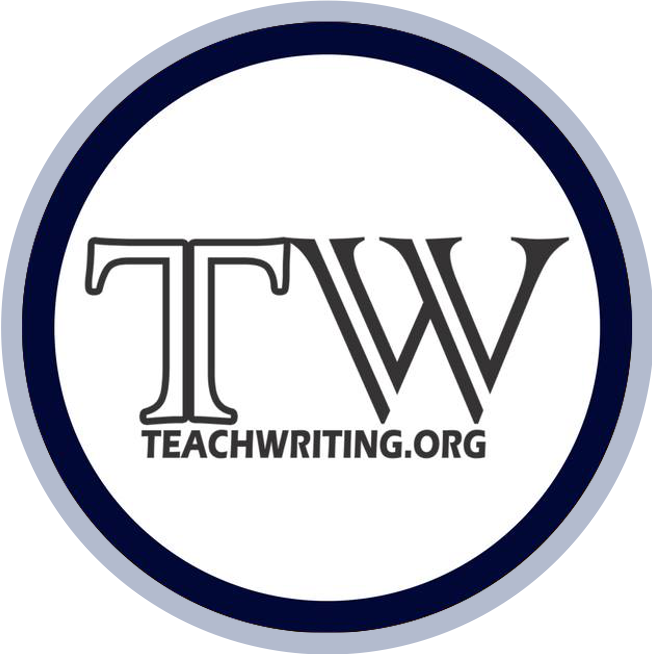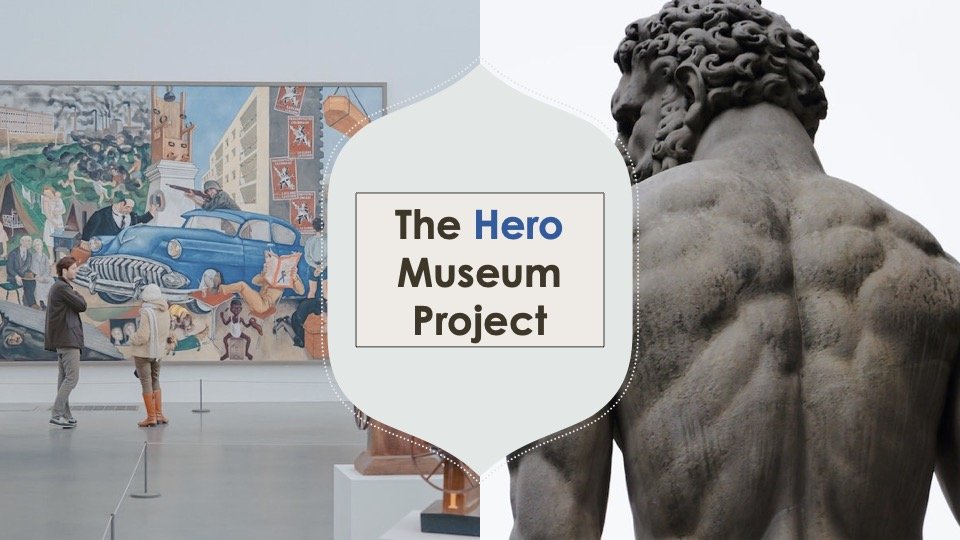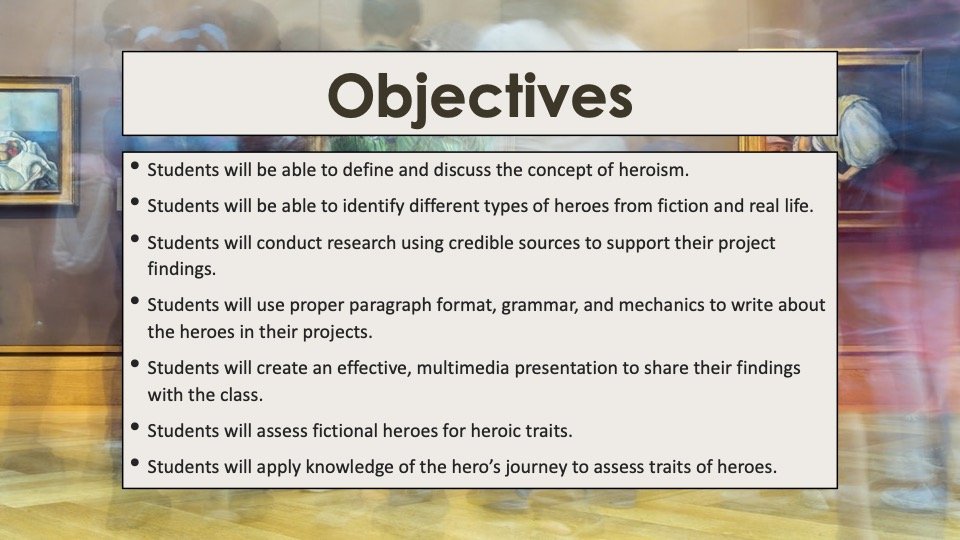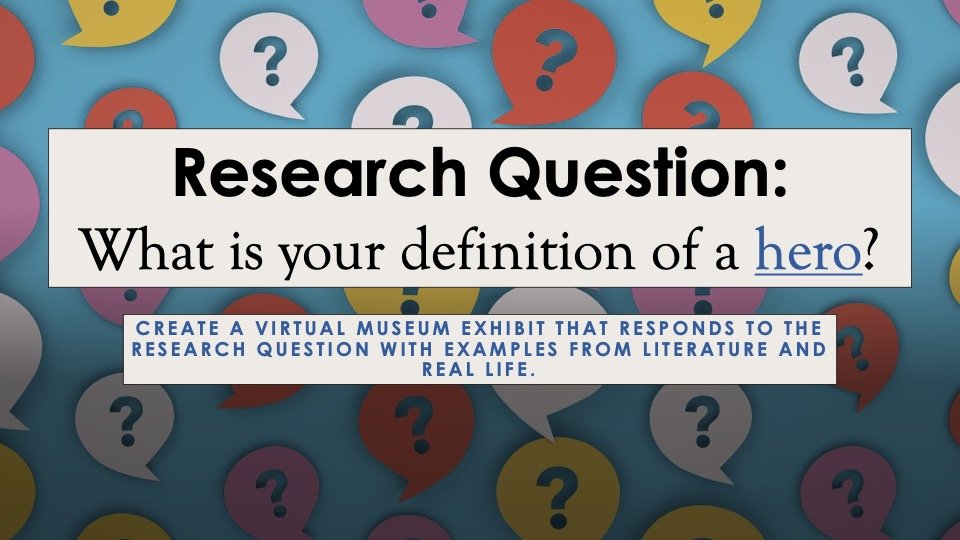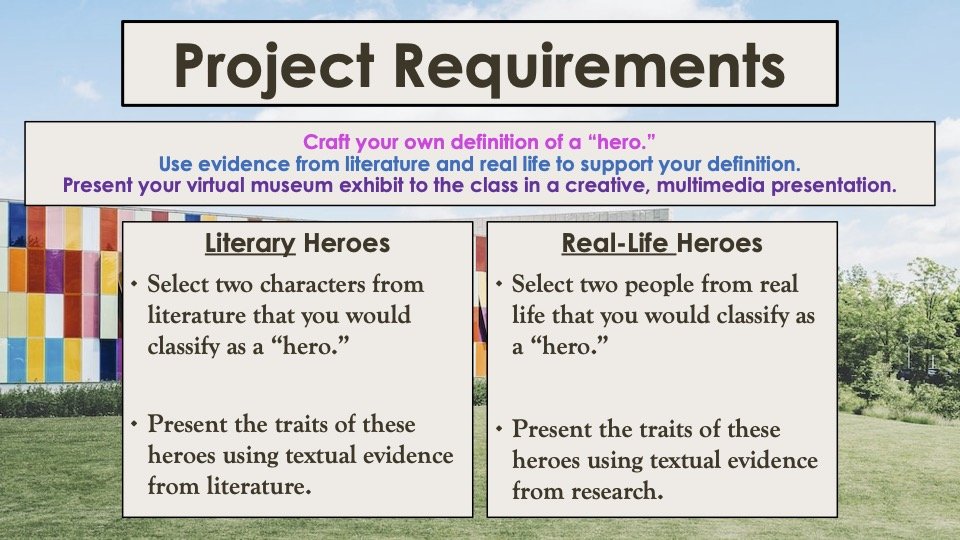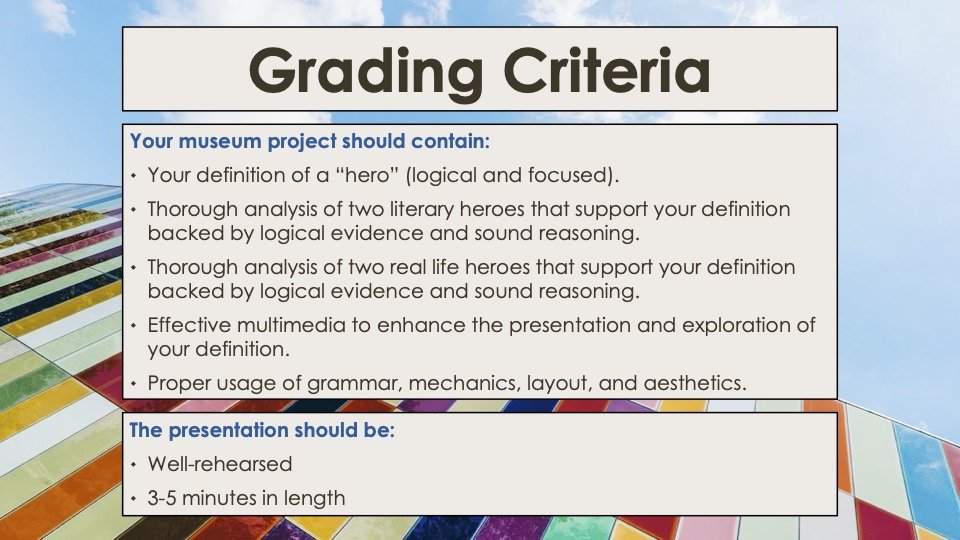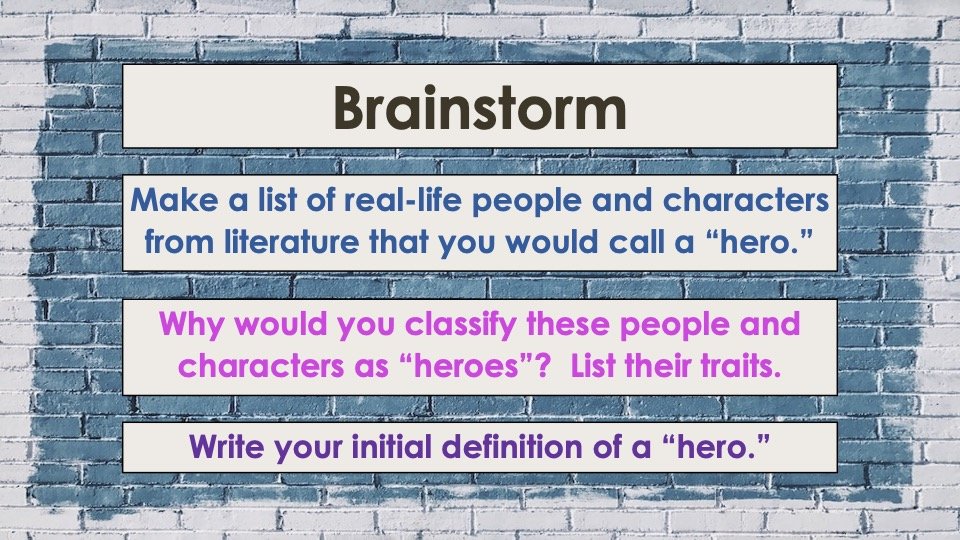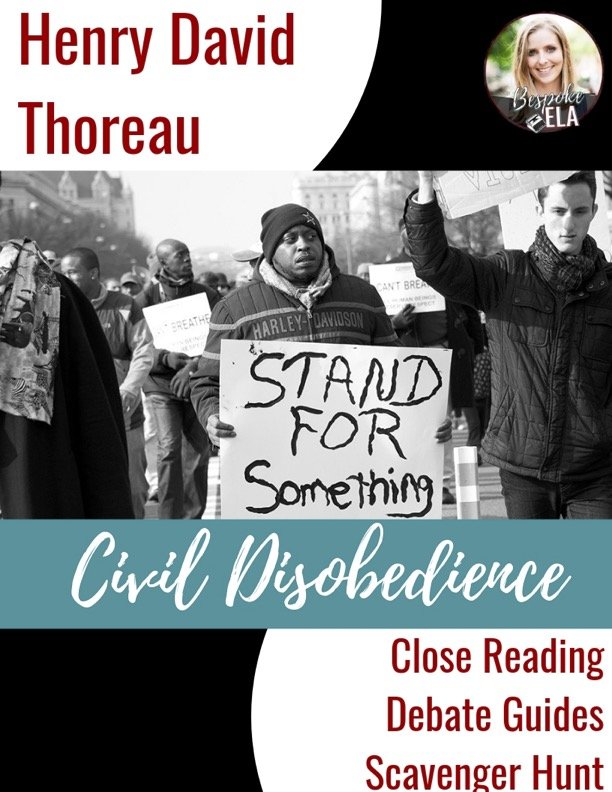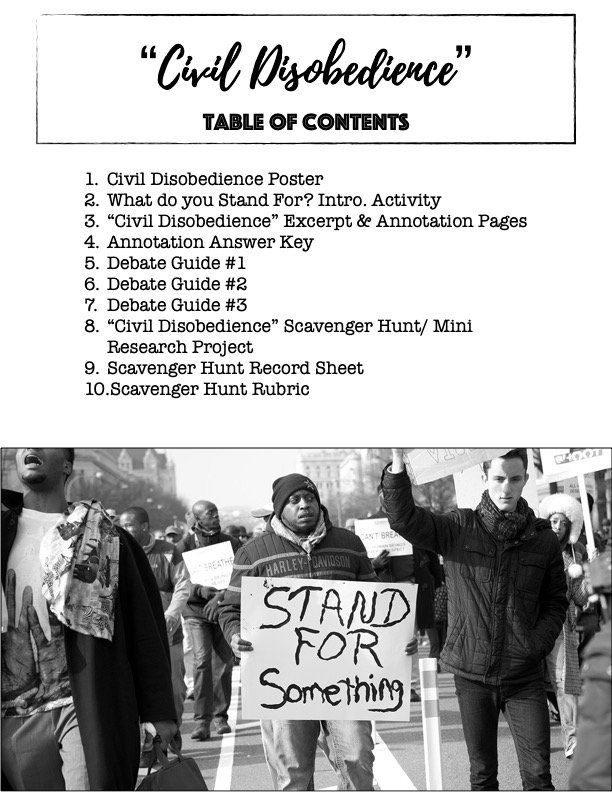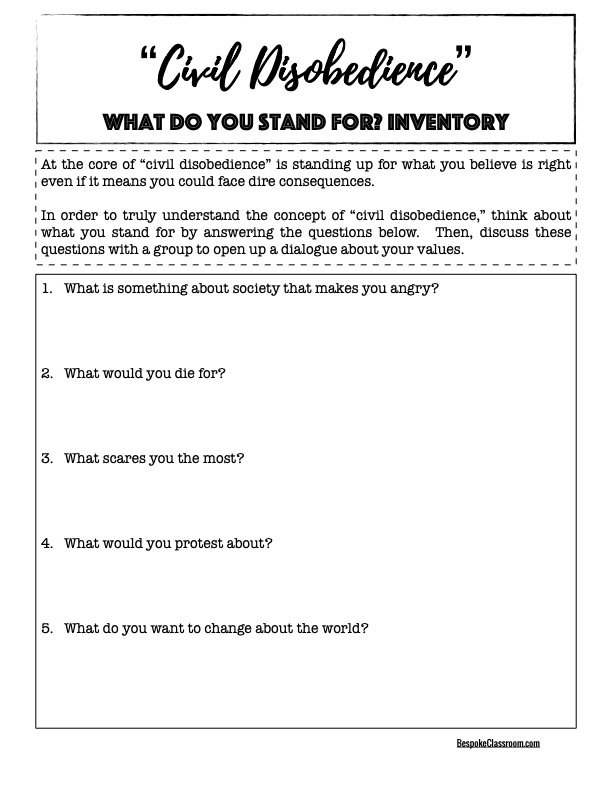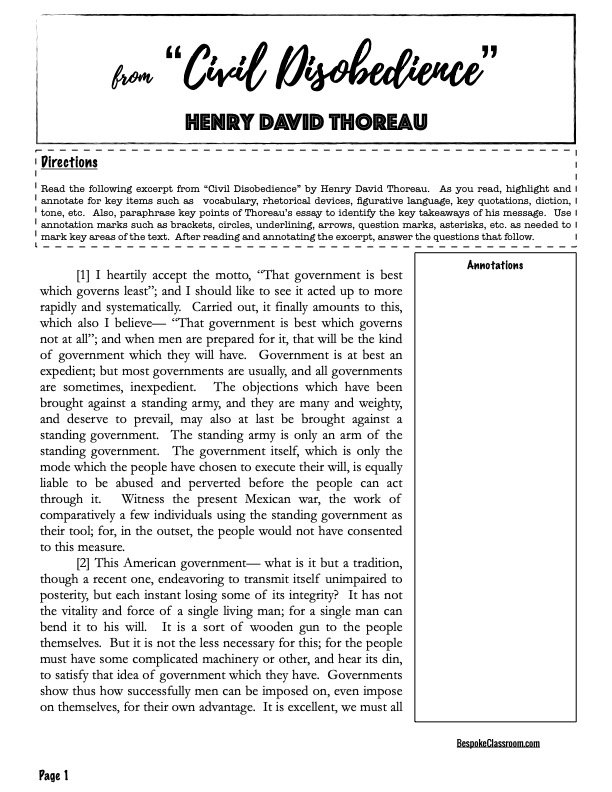Writing Activities for Your Next Unit Hero Unit
Heroes and heroism have always been captivating subjects, transcending time and culture. In an English class, these themes offer an excellent opportunity to engage middle school and high school students in meaningful discussions, critical thinking, and creative expression. This blog post will provide a range of activities and lessons to inspire and educate students about heroes and heroism.
Hero Profiles
To get started with a unit on heroes, it’s effective to begin by asking students to think about who they would classify as a hero. This enables students to tap into what they already think and know about heroes and heroism.
For this starter activity, students can select a favorite real-life hero, historical or contemporary. They can then create a Hero Profile for this person and share it out with a small group or with the entire class. I like to turn my classroom into a hero museum and hang their hero profiles all around the room.
The Hero Museum Project
This project allows students to create their own virtual museum exhibit dedicated to two heroes from literature and two heroes from real life.
Students will research their heroes, create a virtual museum exhibit, and present it to the class. This project is a great way to assess students' understanding of epic poetry, their research skills, and their creativity.
To house their museum exhibits, students can use a website template from Canva or try out Google Sites. My students have tried both and say that they are both very accessible.
Once students have completed their projects, you can have them share their virtual museum exhibits with the class. Students can present their exhibits, or they can simple visit each other’s exhibits online. This is a great way for students to share their learning and to celebrate the accomplishments of heroes.
Find a copy of this project ready to go over at the Bespoke ELA TpT shop by clicking here.
Poems About Heroes
Poetry is a powerful tool that can be used to teach a variety of concepts, including the traits of heroes. By reading and analyzing poems about heroes, students can learn about the qualities that make someone a hero, and they can also see how those qualities are manifested in real-world heroes.
Here is a list of poems to use for your next unit on heroes:
Here are some specific activities that you can do with your students using these poems:
Have students identify the traits of heroes that are highlighted in each poem. For example, students might identify courage in "Invictus" and determination in "If—."
Ask students to discuss how the heroes in these poems inspire them. Students might talk about how they admire the heroes' courage, strength, or compassion.
Have students write their own poems about heroes. Students might write about real-world heroes, or they might create their own fictional heroes.
Create a class anthology of poems about heroes. This is a great way to showcase students' work and to create a resource that can be used by future classes.
Using poetry to teach traits of heroes is a great way to engage students in learning and to help them develop a deeper understanding of what it means to be a hero.
Debate Heroism
Another engaging activity for this unit is to organize debates where students take on different perspectives regarding heroes and heroism.
Here are some debate questions to consider:
Are heroes born, or are heroes made?
Is there a universal definition of heroism?
Can anyone be a hero?
Is it important to have heroes?
Can heroes make mistakes?
Should heroes be rewarded?
How should we honor heroes… or should we honor them?
Who do you classify as a hero?
These questions are designed to get students thinking critically about the concept of heroism and to challenge their assumptions about what it means to be a hero. They can be used for formal debates, class discussions, or writing assignments.
Connect to “Civil Disobedience”
Henry David Thoreau's essay "Civil Disobedience" is a classic work of American literature that explores the concept of civil disobedience and when it is justified to disobey unjust laws— but I don’t need to tell you that. Many famous leaders became famous because of their acts of civil disobedience that changed things for the better.
After close reading Thoreau’s essay, students can research and discuss examples of civil disobedience in the modern world. They can consider the role of civil disobedience in promoting social change.
Activities:
Have students research a recent example of civil disobedience.
Have students write a report on their findings, including the reasons for the civil disobedience, the outcome of the protest, and their own thoughts on the event.
Have students debate the role of civil disobedience in promoting social change.
Have students create an infographic or one-pager about a person who became a martyr for a cause and practiced civil disobedience.
By teaching students about Thoreau's essay and examples of civil disobedience in the real world, you can help them to develop a deeper understanding of the concept of heroism and the role that civil disobedience can play in promoting social change. Students can also discuss and analyze how a literary hero may or may not practice civil disobedience in a story.
Check out this unit by Bespoke ELA on Thoreau’s essay. It contains the following items:
Civil Disobedience Poster
What do you Stand For? Intro. Activity
“Civil Disobedience” Excerpt & Annotation Pages
Annotation Answer Key
Debate Guides
“Civil Disobedience” Scavenger Hunt/ Mini Research Project
Creative Writing Activities
Creative writing activities can be a great way to help students learn about heroes and heroism in a fun and engaging way. By writing about heroes, students can explore the different qualities that make someone a hero, and they can also reflect on what it means to be a hero themselves.
Here are a few creative writing activities that you can use for a teacher unit on heroes for high school students:
Write a letter to a hero. Have students choose a hero, real or fictional, and write them a letter expressing their admiration and gratitude. Students can write about the qualities that they admire in their hero, and they can also share how their hero has inspired them.
Write a short story about a hero. Have students write a short story about a hero who faces a challenge and overcomes it. Students can choose to write about a real-world hero, or they can create their own fictional hero.
Write a poem about a hero. Have students write a poem about a hero, real or fictional. Students can write about the hero's qualities, their accomplishments, or their impact on the world.
Write a song about a hero. Have students write a song about a hero, real or fictional. Students can write about the hero's qualities, their accomplishments, or their impact on the world.
These are just a few ideas for creative writing activities that you can use for a teacher unit on heroes for middle school and high school students. By encouraging students to write about heroes, you can help them to develop a deeper understanding of the concept of heroism and the role that heroes play in our society.
Incorporating heroes and heroism into your English class can be a transformative experience for middle school and high school students. These activities and lessons not only enhance their understanding of literature but also inspire them to reflect on their own potential for heroism in their lives. By encouraging discussions, creativity, and critical thinking, you can help your students become more thoughtful and empathetic individuals who appreciate the heroic qualities in themselves and others.
About the Author
Meredith is the founder and creator of Bespoke ELA and TeachWriting.org. She has taught high school English for 15+ years in Dallas, Chicago, and New York City and holds a M.A. in Literature from Northwestern University. She has always had a connection to the written word-- through songwriting, screenplay writing, and essay writing-- and she enjoys the process of teaching students how to express their ideas. Meredith enjoys life with her sweet daughter and Yorkie.
